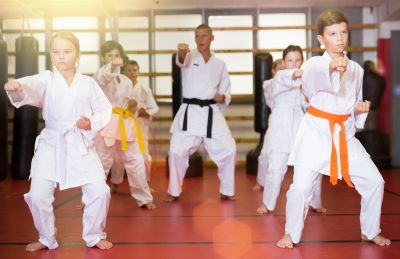Optimal Timing for Skill Assessments
Gradings are a key milestone in martial arts and other skill-based disciplines, marking a practitioner's progress and proficiency. Timing of gradings can influence motivation, skill development, and long-term growth. Understanding the optimal timing ensures individuals achieve the most benefit from each assessment.
Many organizations recommend scheduled gradings every few months to maintain consistent progress and motivation.
Gradings are best scheduled when practitioners demonstrate sufficient skill mastery and confidence in their abilities.
Certain times of year, such as after intensive training sessions or at the start of new training cycles, are ideal for scheduling gradings.
Practitioners may choose to undertake gradings upon reaching personal goals or completing specific training modules.

Participants demonstrate their skills in a formal setting.

A student is awarded a new belt after successful grading.

Practitioners prepare for upcoming gradings.

A class practicing techniques for grading.
| Timing Aspect | Details |
|---|---|
| Frequency | Typically every 3-6 months depending on skill level. |
| Readiness Indicators | Consistent technique, confidence, and understanding. |
| Seasonal Factors | Post-intensive training or at the start of new training cycles. |
| Personal Goals | Achievement of specific skills or milestones. |
| Event Alignment | Before competitions or demonstrations. |
Gradings serve as a formal recognition of skill development and commitment. They motivate practitioners to refine techniques and deepen their understanding of their discipline. Proper timing allows for meaningful assessment, ensuring that individuals are adequately prepared and can showcase their true capabilities.
Statistics indicate that regular gradings can improve retention rates and skill mastery. Scheduling assessments thoughtfully can reduce burnout and increase engagement, contributing to long-term success in training programs.

A student demonstrates skills during a grading.

An instructor assesses a student's performance.

Celebration after successful grading.

Tools used during preparation for gradings.
Individuals interested in scheduling gradings are encouraged to contact for more detailed information. Proper planning ensures assessments align with training progress and personal goals, maximizing the benefits of each grading.
